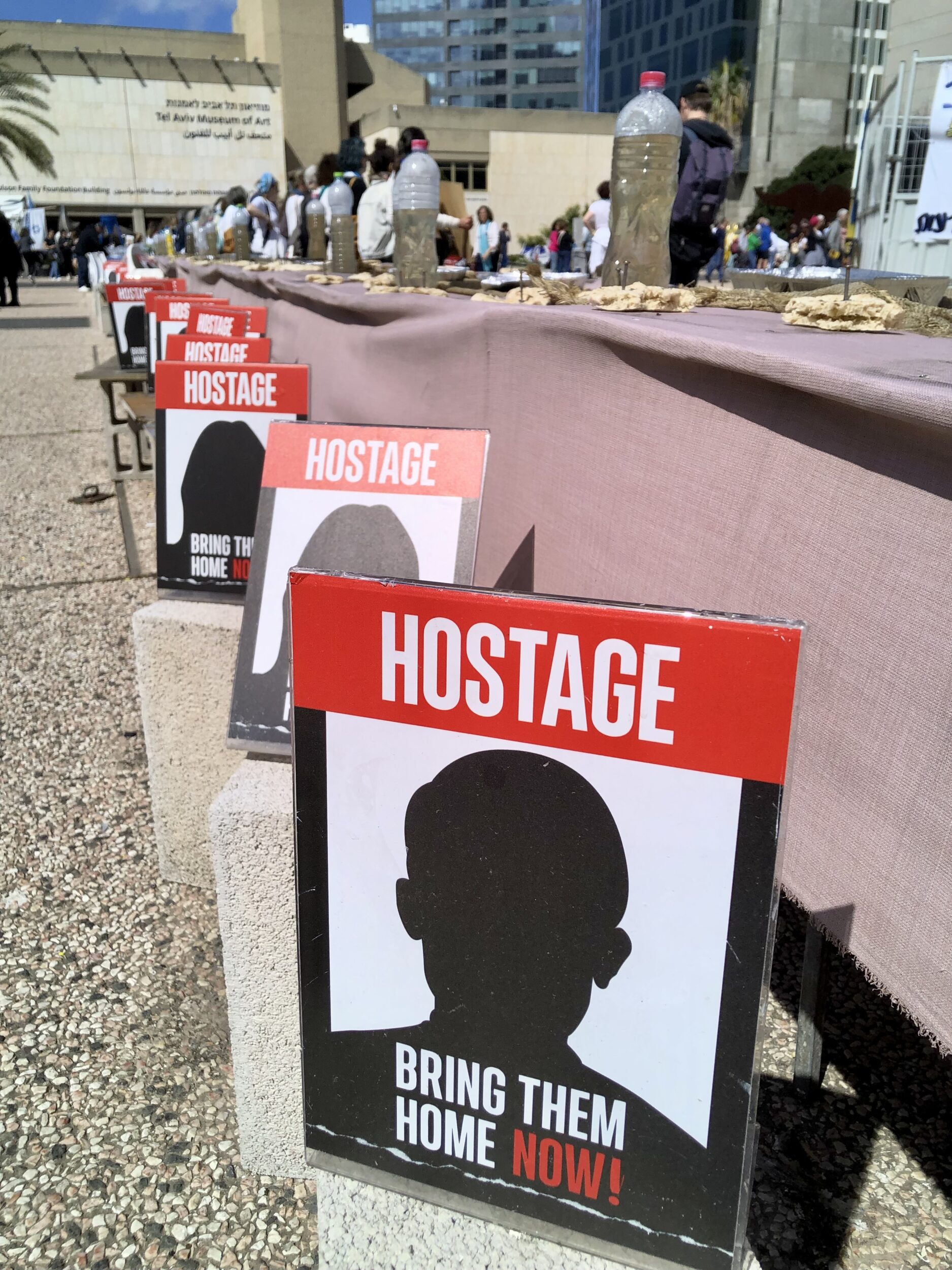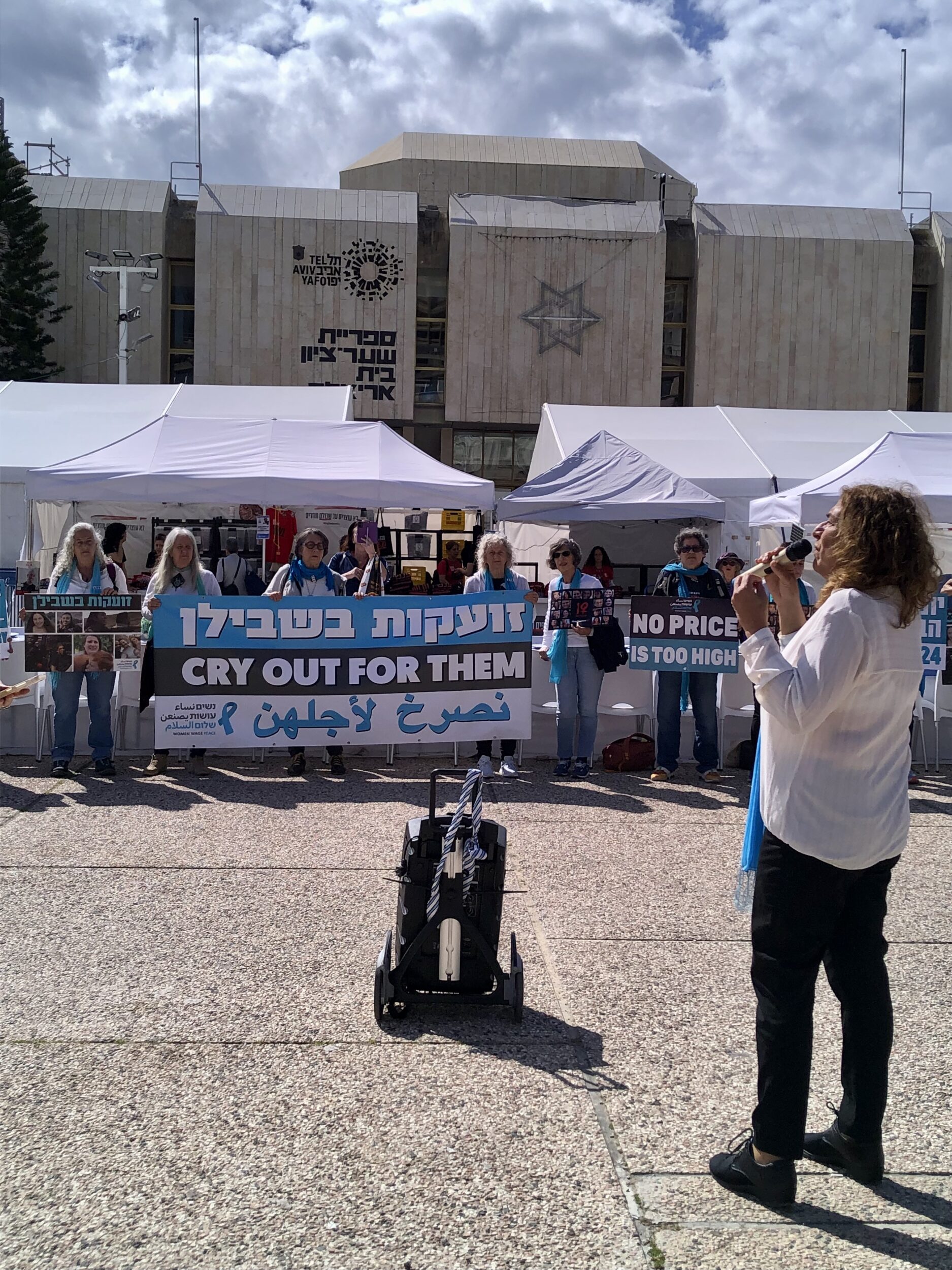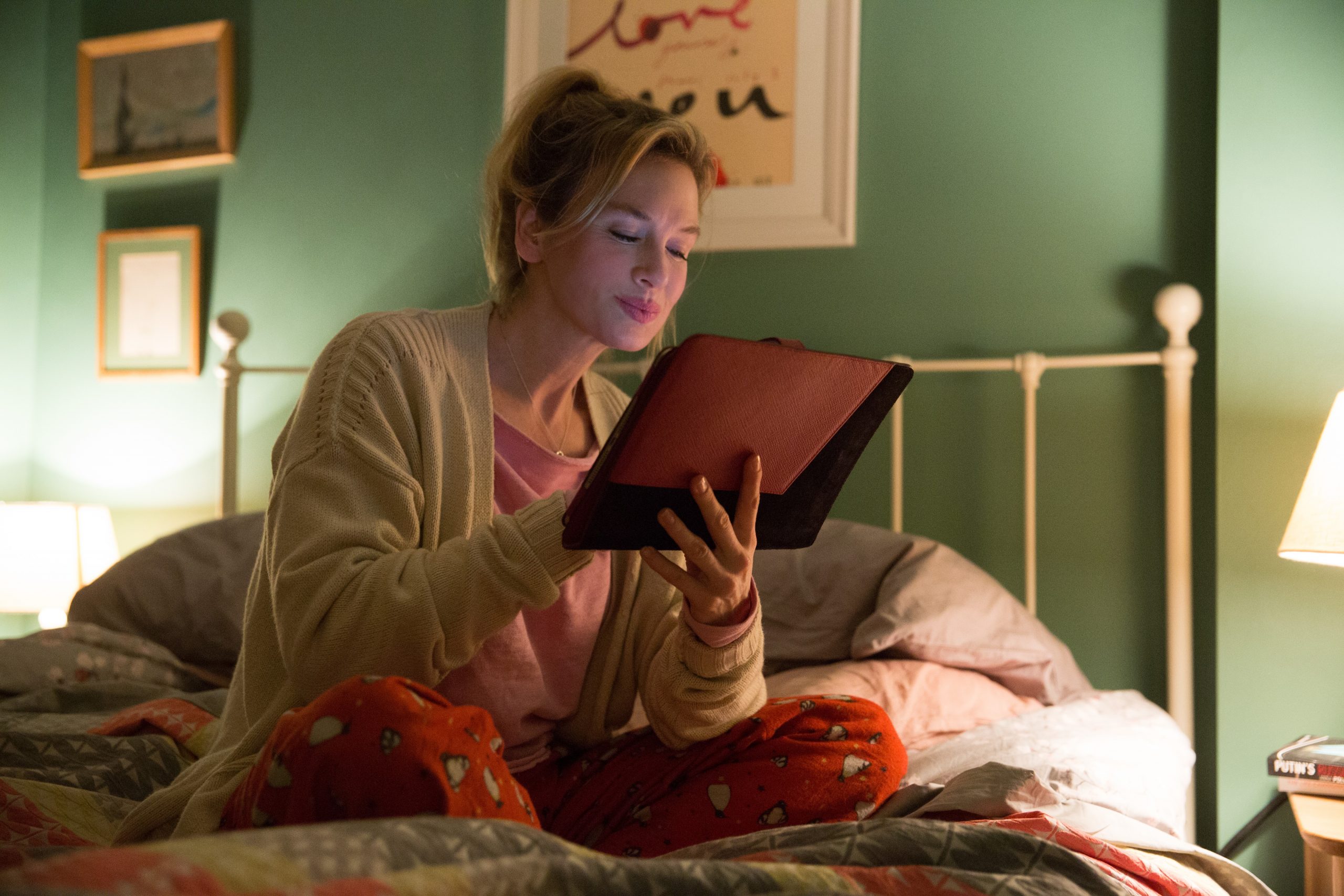Until a few months ago this square, in front of the Tel Aviv Art Museum, was occupied by children playing and tourists. Since October it has been called “Hostage Square”. » This is where the families of the hostages still held in Gaza gather, to demonstrate against a government that no longer seems to make them a priority, or simply to be together.
Under a blue, cloudless sky, the square almost has the deceptive air of an amusement park. On stage the relatives of the hostages sing and play the guitar. In a shaded corner, a small stand offers yellow manicures, in the colors of the liberation campaign. Next door they sell T-shirts, bracelets and pins. But upon closer inspection, the large table with 136 plates, due to the number of hostages still in Gaza, is covered in stale bread and stale water. Near the stage, an installation by artist Roni Levevi recreates a tunnel, which is supposed to evoke those in which the hostages would have been held.

A few hours before the start of Shabbat on this Friday in March, another group appeared in the square. There are many of them, dressed in white and blue, and unfurling signs and banners. The regulars at Hostage Square are not surprised: they are the women of Women Wage Peace, who have been coming here to talk about peace every week since October. They line up wisely. They remain silent as they hold up their signs with messages of hope. Then they recite the names of the 136 hostages in chorus.
Resolution 1325
It is only natural that the women of Women Wage Peace, an organization founded in 2014 after another war in Gaza and which today has 50,000 followers, joined Hostage Square after October 7. “ At first we didn’t really know what to do. », admits Pascale Chen, 57 years old, its French-speaking coordinator. “ We asked the families of the hostages and they told us: be there. We know it gives them a little support. What we want above all is to ask the government to put an end to this war. »
Because this is the reason for the existence of Women Wage Peace. Since 2014, the women’s organization has been fighting for the implementation of UN resolution 1325, which, adopted in 2000, requires the various parties in conflict to support women’s participation in peace negotiations and reconstruction. The movement, which aims to be apolitical and does not support a specific plan, adopts the quote from American activist Swanee Hunt: “Women tend to have a more holistic view of security, which includes not only political sovereignty and military strength, but also economic security, education and security. » According to one of the many studies showing this, out of forty peace processes in thirty-five different countries since the 1990s, those that included women were much more likely to reach a lasting agreement.
“ Today we are talking about 5% of women present at negotiations, it is unthinkable when they represent half of humanity », continues Pascale Chen. “ I don’t think women are more pacifist than men, but according to studies on the subject they seem to have a vision less focused on the exercise of force and more inclined towards dialogue. They would also think more about the inclusion of minorities. The explanation perhaps lies in the way society educates girls, and often directs them towards careers in education treatment. » But in Israel, although the country has signed Resolution 1325, no national action plan has been established to implement it. The women of Women Wage Peace then decided to turn to other interlocutors.

The day before in Jerusalem
There were a few days left until October 7th. On Wednesday 4th, in Jerusalem, the Israeli women of Women Wage Peace celebrated three years of collaboration with the Palestinian women of Women of the Sun, an association based in Bethlehem. For the occasion they marched through the streets, united and determined to send a message to the world and to the leaders. “ We managed to organize something together, we read a statement in Hebrew and Arabic that basically said: ‘heed the call of Israeli and Palestinian mothers, we want to end this conflict diplomatically and we want a better future for our children. It seems trivial, but in the Israeli-Palestinian context it is a great victory » says Pascale Chen.
This October 4th the local and international press will report on the event. Diplomatic representatives from different countries come to support the two associations. Three days later, everything collapsed. On one of Be’eri’s kibbutzim, 74-year-old Viviane Silver was murdered. She was a peace and women’s rights activist and one of the co-founders of Women Wage Peace. “ It was a terrible shock », recalls Pascale Chen. “ I must admit that since then many friends and members of the organization have lost hope. But a few days later we started meeting on Zoom again, just to chat. Little by little the Palestinians of Women of the Sun got closer to us and asked us for news. The dialogue slowly resumed. » The two associations were finally able to meet in person in February during meetings abroad.
“ What we remember from October 7 is that the military solution is not the right one. We can never live in peace like this » insists Chen. Women Wage Peace now calls for the start of a peace process, in which Israeli and Palestinian women are fully involved. “ War is not a solution, it is a reaction. It must stop, people must be able to return home, we must stop the bombing of Gaza, rebuild and bring international humanitarian aid. » If this speech does not particularly earn them black looks in Hostage Square, it is not the same in Israeli society. “ Some people shout that we can talk about peace. They say we are naive, that we don’t understand anything…” Internationally, however, this message of peace seems to be better heard. And particularly in Northern Europe, where Women Wage Peace and Women of the Sun have just been jointly nominated for the 2024 Nobel Peace Prize.
Listen to Laisse-moi kiffer, Madmoizelle’s cultural advice podcast.
Source: Madmoizelle
Mary Crossley is an author at “The Fashion Vibes”. She is a seasoned journalist who is dedicated to delivering the latest news to her readers. With a keen sense of what’s important, Mary covers a wide range of topics, from politics to lifestyle and everything in between.




